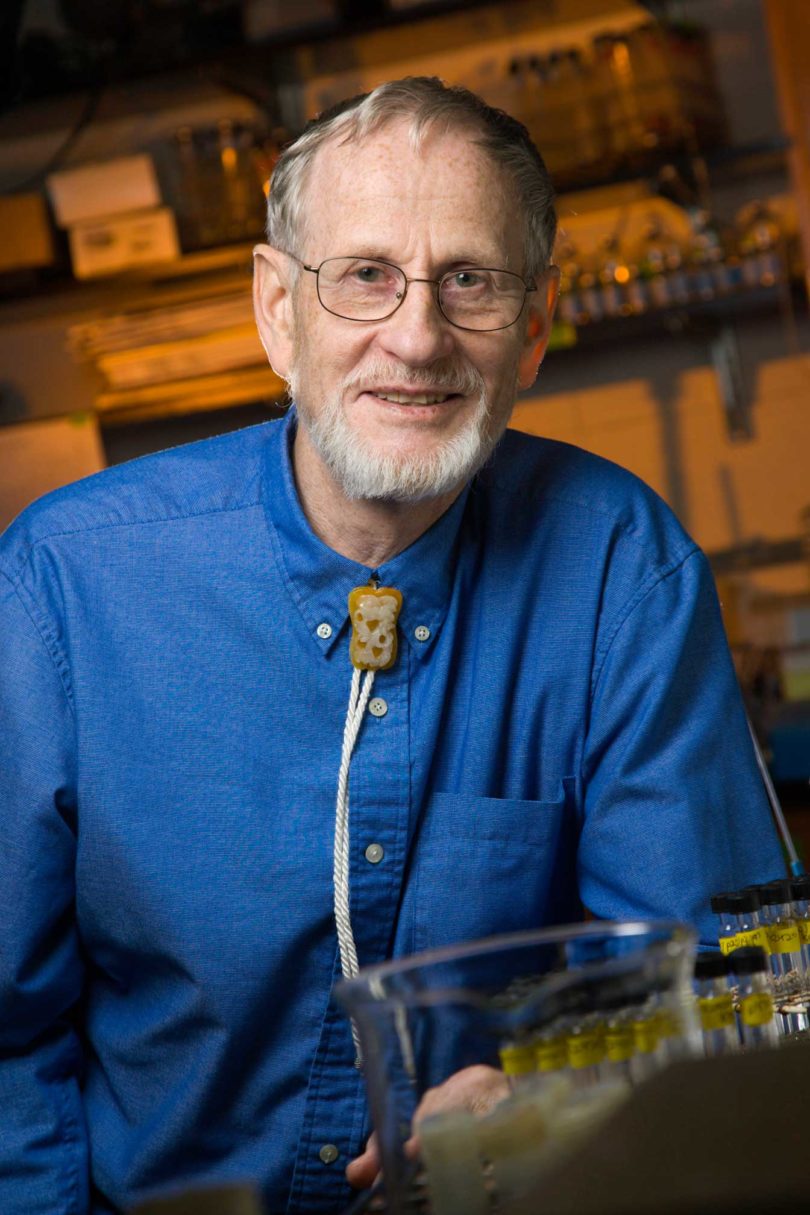From the depths of undersea hydrothermal vents to the heavy-metal waters of mining wastes and the cold of Antarctic glacial ice—microorganisms known as extremophiles tolerate, and thrive in, the most inhospitable environments on Earth.
The unique biology of these microorganisms has triggered interest in researchers around the world: Can extremophiles help solve the problem of efficient and cost-effective processing of biomass into fuels?
Experts on these extreme microorganisms will convene Sept. 19-20 for “Extremophiles: Key to Bioenergy?”—a symposium at the Georgia Center for Continuing Education Conference Center and Hotel.
The symposium is held on the occasion of the retirement of Juergen Wiegel, Distinguished Research Professor of Microbiology and a pioneer in extremophile research.
Wiegel was one of the first modern microbiologists to recognize the utility and importance of thermophilic anaerobes, which grow in the absence of air at temperatures above 55 degrees Celsius. He built one of the premier laboratories for the isolation and characterization of these organisms. This work led to the description of a novel order and family, 15 novel genera and 36 novel species of bacteria, and more than 220 original scientific publications, including three patents.
He also led an international team funded by the National Science Foundation to study the microbiology of extreme organisms at Kamchatka, Russia, a remote location with unique volcanic features that had never been studied before.
“The symposium is extremely timely in respect to the growing recognition that the world cannot sustain its current dependence on fossil fuels as the key source of energy, as well as the substantial efforts of the University of Georgia in these areas of research,” said Robert Maier, professor of microbiology and GRA Ramsey Eminent Scholar of Microbial Physiology.
The meeting features 30 invited speakers, including 20 international speakers from Europe, Asia, South America and Africa, as well as 10 speakers from the U.S. Poster sessions will showcase scientific research by UGA graduate students and faculty.
The opening session will feature remarks by retired Georgia Power Distinguished Professor of Biotechnology Lars Ljungdahl, a long-time UGA faculty member and extremophile pioneer. William Whitman, Distinguished Research Professor and head of microbiology, will offer closing remarks. A dinner honoring Wiegel, with remarks by Steven W. Ragsdale, professor of biological chemistry at the University of Michigan and UGA alumnus, will conclude the event.
The symposium was organized by Maier, Whitman and Michael W. Adams, Distinguished Research Professor of Biochemistry and Molecular Biology and Georgia Power Professor in Biotechnology.
The conference is supported by the President’s Venture Fund; State of the Art Conference Funding provided by the Office of the Senior Vice President for Academic Affairs and Provost; the office of the Dean of the Franklin College of Arts and Sciences; UGA’s departments of microbiology and biochemistry and molecular biology; the UGA Bioenergy Systems Research Institute; and New England BioLabs.
ON THE WEB
http://extremophiles.uga.edu






